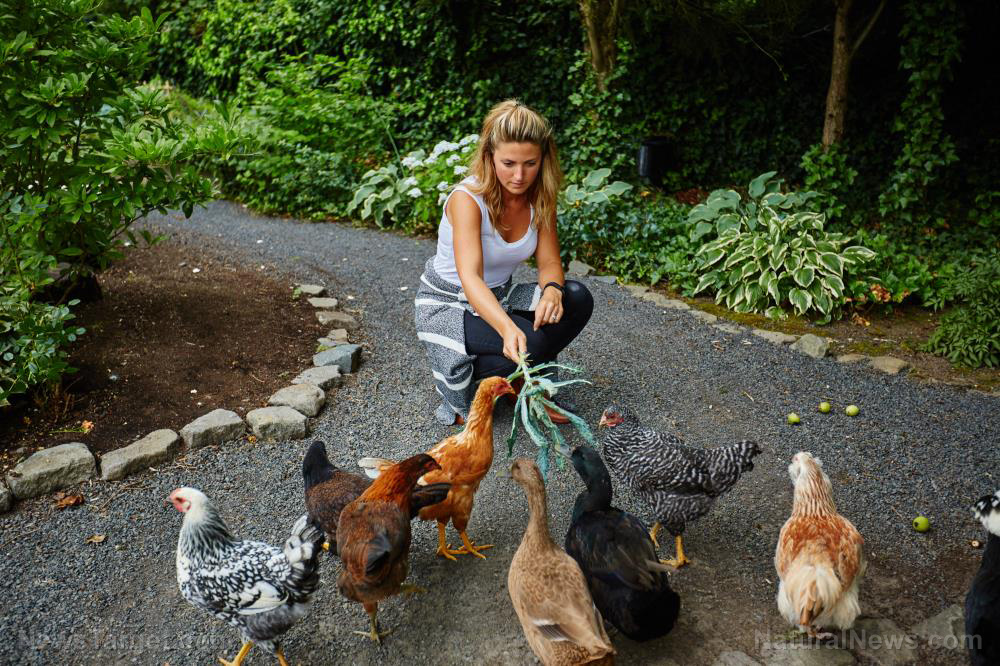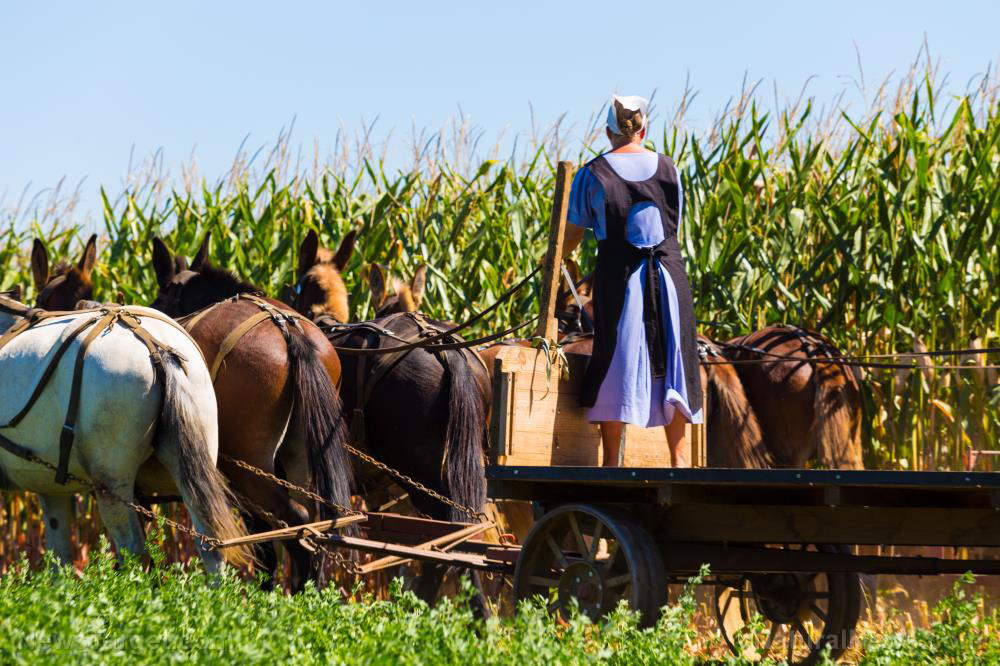Homesteading 101: How to protect your chickens from various predators
12/17/2020 / By Zoey Sky

Having chickens on your homestead means you always have access to fresh eggs and chicken meat. But owning chickens also comes with the responsibility of protecting them from predators like foxes and hawks. (h/t to HomesteadAdvisor.com)
To keep chickens safe, you will need to learn how to identify common predators and how to effectively keep them out of your chicken coop.
Protecting your chickens from nighttime predators
Nighttime predators may include animals like:
- Cats
- Coyotes
- Dogs
- Foxes
- Opossums
- Owls
- Raccoons
- Skunks
- Snakes
- Weasels or minks
- Wolves
At night, chickens snuggle together on their roost, meaning that they’re all in one place. This makes it easier to protect them from nighttime predators if you use the right methods. (Related: 10 Reasons preppers need chickens on their homestead.)
Since the chickens are gathered in one area at night, you can easily block the entrance to their coop. You can do this by using several methods that can also be applied against daytime predators.
First, secure the coop and find holes in the surrounding wire or gaps in the fencing or structure. Inspect your coop thoroughly to find possible points of entry for nighttime predators.
Next, search for the smallest area of entry. A predator that’s hungry enough will squeeze itself into the smallest hole to reach your chickens.
If you have the funds to do so, get a perimeter electric fence to keep out predators. Place the hot wire just above the ground around the perimeter of the chicken house and set it on a timer so it powers on once the chickens turn in for the night.
Note that you may have to adjust the timer depending on the length of days (season) and bi-yearly changes in daylight savings time (DST).
Since the electric wire is close to the ground, small predators will touch the wire as they try to enter your coop. A high-quality fence charger that produces a hard jolt of electricity will help keep predators away from your chickens.
Make sure you get an electric fence that is at least one-joule or even two-joules or above. “Joules” measures the “shock value” that the charger produces. The higher the joules, the better for keeping out predators.
Make sure the top of your coop is covered to keep out owls. You can also keep lights on at night as a short-term deterrent for owls.
Other methods to use for keeping out flying predators such as owls include:
- Spreading out a bird net over your coop or yard to stop owls from swooping in. Nets made of meshed fishing lines will prevent owls and other predators from getting through when they try to come in from above.
- Putting in an electrical mesh fence.
- Using artificial owl dummies.
- Using visual deterrents like ribbons, wind chimes or strobe lights.
When dealing with owls, take care not to kill them. Both hawks and owls are protected under the law, specifically the Migratory Bird Treaty Act (16 USC, 703-711). If you are reported, you may be fined heavily or spend several months in jail.
Snakes will eat chicken eggs and kill small chickens that are a month old or less. Snakes can get into small holes, so keep an eye out for any openings by your chicken coop.
An electric fence will also work on larger predators if you place a second hot wire higher than the electric fence for smaller predators.
Protecting them from daytime predators
Daytime predators include most of the animals from the list above, along with other predators such as:
- Bobcats
- Cougars
- Coyotes
- Foxes
- Stray cats and dogs
You can protect chickens from ground predators with a sturdy fence. Options include a chain-link fence, woven fence, or electric fencing (though these will not guard against snakes).
Preppers without a fenced-in yard may suffer losses from daytime and nighttime predators. If you’re worried about your chickens, get a livestock guard dog (LGD) whose sole task is to stay outside on your property with the other animals. The Great Pyrenees is a great breed if you’re looking for a LGD.
Another method that works well against daytime predators is electrified netting. This moveable netting can be placed as a perimeter fence to keep the chickens inside and the predators outside.
Protecting them from aerial predators
Aerial predators like eagles and hawks may also target your chickens. Most hawks aren’t large enough to fly off with a full-grown chicken, but these predators will pounce on the chicken, kill and eat it partially while still on the ground.
Eagles are usually large enough to fly off with a chicken, leaving only several feathers behind as evidence.
The best way to keep out eagles and hawks is by using bird netting. It needs to placed strategically, with no gaps for the aerial predators to enter the area.
Ensure that your homestead is secure and use methods like bird netting or electric fencing to protect chickens from aerial, daytime or nighttime predators.
Sources include:
Submit a correction >>
Tagged Under:
animals, backyard chickens, chickens, farm, farm animals, green living, Homestead, homesteading, livestock, off grid, Off-the-grid living, predators, preparedness, prepping, sustainable living, wildlife
This article may contain statements that reflect the opinion of the author
RECENT NEWS & ARTICLES
OrganicFarming.News is a fact-based public education website published by Organic Farming News Features, LLC.
All content copyright © 2018 by Organic Farming News Features, LLC.
Contact Us with Tips or Corrections
All trademarks, registered trademarks and servicemarks mentioned on this site are the property of their respective owners.





















